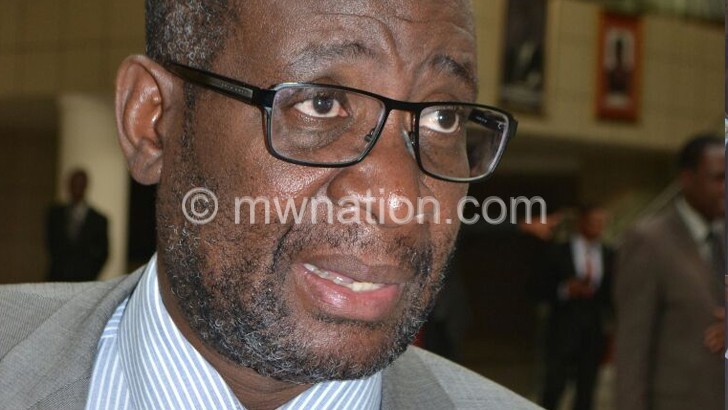State produce trader Agricultural Development and Marketing Corporation (Admarc) has appealed for a bailout to settle loans obtained from various commercial banks.
Admarc general manager Rhino Chiphiko said on Monday the corporation’s debt hover around K58 billion and is hindering it from accessing finances to manage its operations.
Chiphiko: Our balance sheet is unattractive
He said this in Lilongwe when Admarc officials appeared before the Public Accounts Committee (PAC) of Parliament to update it on the operations of the corporation.
Chiphiko said government should settle the loans to enable it start on a clean slate to secure finances to improve its operations.
He said: “The loans have accumulated to K58 billion. They were taken at different periods. They span between 2012 and today. The debt has been accumulating overtime and they make our balance sheets very unattractive.
“When you go to the bank with a balance sheet that has got a lot of unpaid loans, it becomes a big problem for financial institutions to give you more money and that is exactly the problem we have at the moment.”
Poya: They have to be prudent in using resources
PAC vice-chairperson Ned Poya said the produce marketing company needs to be bailed out but there is need for it to demonstrate prudence in management of resources as what they are asking for is taxpayers’ money.
“With their balance sheet, banks cannot be positive to lend them money. That is true, they need support because if you look at Admarc entirely, it is our backbone. Even the villagers know Admarc as their backbone so they need some help,” he said.
Last year, the corporation failed to secure K95 billion to procure 410 000 metric tonnes (MT) of produce, including maize.
It only managed to get K25 billion from commercial banks which enabled it to buy 150 000 of farm produce.
The financial performance of Admarc Limited has over the years been troubling.
According to the 2021 government Annual Economic Report, Admarc reported K19.8 billion as revenue in 2020, but the bulk of it comprised invoices to government for undertaking social obligations on its behalf.
As at half-year of the 2020/21 financial year, Admarc recorded a net loss-after-tax of K3.7 billion, mainly because it did not secure funding for commodity purchases in time, the Annual Government report shows.
On the other hand, the liquidity position of Admarc in the 2019/20 financial year was barely on the margins at a current ratio 1.37:1 while leverage was at 65 percent as measured by debt and equity proportions.
At mid-year, the current ratio had worsened to 1.07:1 and it was projected at the time to further worsen to 0.76:1 by June 2020 indicating that the corporations will struggle to meet short term obligations as they fall due.
In a recent interview, agriculture policy development expert Tamani Nkhono-Mvula observed that Admarc needs to be ‘freed’ to trade as a commercial entity that it is.
“We find it very unfortunate that Admarc is in a position where it is failing to generate revenue yet it is a commercial entity.
“We want to see Admarc sustain its operations and this can only be possible if the government does not let it carry its social obligation on its behalf,” he said.
Admarc was created in 1971 as a statutory corporation mandated to, among others, market agricultural produce and inputs, facilitate the development of the smallholder agricultural subsector and also attend to social obligations on behalf of government.
Until 1987, Admarc was the sole buyer of smallholder produce, but in 2004, it was incorporated as a limited liability company with government owning 99 percent of the shares.
This, experts say, needs to be reviewed to ensure the government shareholding is reduced by relinquishing some shares to willing public investors.
The post Admarc pleads for K58 billion appeared first on The Nation Online.
 Moni Malawi
Moni Malawi 

